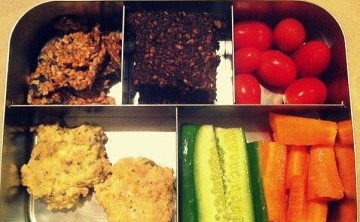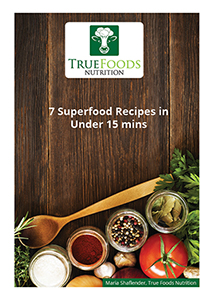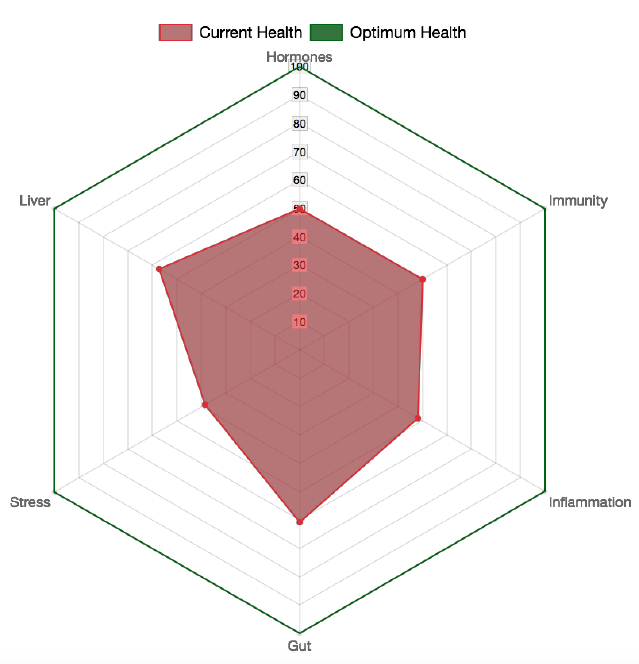Fussy Eaters: 25 Strategies To Get Kids To Eat Healthy
Just about every parent I know thinks their child is a fussy eater. The degree of ‘fussiness’ varies widely of course. When my daughter refuses to eat her sauerkraut or bone broth I think she’s being fussy! I usually ignore and try again the next day, when she will usually gladly eat these nutrient dense foods because she is USED TO eating them, knows they are very HEALTHY and the whole FAMILY eats them on a regular basis.
I do appreciate though that for most parents, the battle is usually focused on regular foods like chicken or fish, the dreaded vegetables – of course:) and for many also fruit. However, no matter what your child is fussy about, I do hope the below strategies prove useful.
I employ these tactics on a regular basis and I also find that my previous life as a marketer does provide some helpful skills. Use your powers of persuasion and become a ‘food marketer’- for your kids! “Marketing” food to your children can be an invaluable tool when it comes to breakfast, lunch and dinner.
I will tell you that it IS important to address fussy eating as soon as possible because studies show that fussy eating can lead to anxiety, depression and future negative effects on children’s health: http://www.sciencedaily.com/releases/2015/08/150803083343.htm
Some of these tips are common sense and some require a bit of ingenuity.
Why are kids fussy eaters?
Parents who struggle with this problem will have noticed that: kids usually start developing fussy eating habits in the second year of life, refusing a lot of foods and limiting their diet to starchy and sweet foods:
- Breakfast cereals, crisps, chips, popcorn, cakes, biscuits
- Bananas, bread, rice, sweet yogurts
- Most refuse veg and most fruit, meat, fish and eggs
There are many physiological and nutritional reasons for this behaviour (usually nothing to do with them wanting to be ‘difficult’).
Reasons why your child may be a fussy eater
Digestive Issues & Parasites
Digestive issues like worms (extremely common!), parasites (unfortunately also very easily picked up at daycare), candida (yeast overgrowth), gut dysbiosis (where bad bacteria multiply out of control) and SIBO (small intestinal bacterial overgrowth, where bad bugs spread upwards into the intestinal tract where they are not supposed to be found at all) are very prevalent in our modern world.
Most of these conditions result in your child CRAVING sweet, starchy or yeasty foods- in other words BREAD and CAKES!!
Why? Because these bugs feed on sugar.
Very simply, they use sugar for energy and the more your child eats the above foods, the more the bugs multiply and the more the cravings persist. It’s a vicious cycle.
If you suspect one of the above conditions may be an issue or if there’s been a sudden change in eating behaviour, see a nutritionist or a naturopath, run some tests and then you’ll know how to deal with the issue.
The other obvious reason for fussiness is…
Allergies and intolerances
Many kids are addicted to wheat and dairy foods. When wheat and dairy are ingested, they are only partially broken down and these partial proteins (peptides) mimic the chemical properties of opiates. Kids become literally addicted to these foods and crave them all the time. More about this in my previous article here.
Nutrient Deficiency
Another major reason for fussiness can be vitamin and mineral deficiencies. MOST kids (yes MOST) today are deficient in Magnesium, Zinc, Iron, Copper, Iodine, essential fatty acids, etc etc. Deficiencies can manifest as fussiness as kids will usually want the foods to replenish these vitamins.
So here is the list to get you started on the road to wholefood nutrition for your kids:
25 strategies to get your fussy eater to eat healthy food
1. Rule out any medical and nutritional issues as above: allergies, intolerances, bacterial dysbiosis, mineral/vitamin deficiencies, etc. Get to the core of WHY they are fussy! This will take time and money, but if you really feel there is an issue beyond ‘behaviour’ then trust your gut and investigate it.
2. You are in charge of what the family eats, not the toddler/child! Be the leader, show that you make good food choices for the family.
3. Do not keep at home anything you don’t want the kids to eat. No junk food, no processed foods, only healthy options for snacks or dessert
4. New foods need to be offered continuously. Use a sticker chart and reward for trying new foods. Reward good food choices and trying new foods with lots of enthusiastic praise and hugs. Ignore the winging ‘I don’t like it’ behaviour completely.
Typical scenario “I offered her broccoli a couple of times, but she WON’T eat it”. My answer: “YES she will! You just need to keep offering it. INDEFINITELY! Until she eats it”. It took me a year to get my daughter to like sauerkraut. You get the idea! NEVER give up. Getting your child to eat many different healthy foods is so important, consider it your mission in life!!
5. Respect their right to choose foods for themselves- provide 2-3 choices, for example “today we’re having carrots, celery and capsicum, which 2 would you like?”
6. In the afternoon whilst dinner is getting made, offer veg sticks with avocado dip – these will disappear without any prompting if the kids are hungry
7. Limit or eliminate processed dairy, wheat and sweets (and all processed foods discussed above!)
8. Limit or eliminate sugar. It disrupts normal eating behaviours. This includes fruit juice
9. NEVER use food as a reward. Do not use the word ‘treat’. It sets up bad habits
10. Grow a vegie patch or potted herbs and get the kids involved in looking after these. There is nothing more rewarding than eating the ‘fruits of one’s labour’- my kids now eat parsley and mint with pleasure because they get to pick them from the vegie patch
11. Offer a variety of foods and flavours from early age
12. Offer nutrient dense traditional foods like bone broths, lacto-fermented foods, organ meats, lots of eggs, fish and seafood- these are deeply satisfying foods that will help your child grow well! See TFN nutrition house for reference.
13. Model positive eating behaviour– enjoy vegetables, meat/fish and other healthy foods in front of your children!
14. Start with the easy things: always place something on the plate the child enjoys and offer all other healthy foods next to
15. Talk about healthy foods from a young age and explain why it’s important to eat healthy foods
16. Get kids involved in food prep and/or cooking
17. Always eat at the table – no walking around with food, no TV or other distractions
18. Don’t make kids finish all their food. Trust that they can listen to their appetite. Many disregulated eating patterns stem from the ‘you must finish your plate’ scenario
19. If your child doesn’t eat well at lunch/dinner, reduce the number and size of snacks or eliminate snacks altogether
20. Re-evaluate the amount of drinks that are not water, eg: stop fruit juices, rice/soy/almond milks. These provide no nutrition and take appetite away from proper food.
21. Do not force them to eat if feeling unwell. The best thing a body can do when it’s sick is to focus on healing and not digestion. Bone broths are best when the kids are sick, the appetite should come back when they are feeling better
22. Be loving but firm: understand the importance of good nutrition. If healthy food is not eaten, your child CAN go to sleep with no dinner. They won’t starve and it will only take a day or two to learn the lesson
23. The family meal is the only meal option– no other foods will be prepared on demand!
24. Enjoy family time at meals! Talk about something pleasant and the food will disappear by itself. It’s not a power struggle.
25. Focus on kids being active throughout the day – the more energy they expend, the more hungry they will be, the less fussy with food!
A fun and useful resource for overcoming fussy eaters is a book by Karen Le Billon called ‘French Kids Eat Everything: How Our Family Moved to France, Cured Picky Eating, Banned Snacking, and Discovered 10 Simple Rules for Raising Happy, Healthy Eaters’.
Have you tried any other strategies with your fussy eaters that work? Do share!!
For testing and more tactics to get your fussy eater to start eating healthier foods, book in a consultation with me here. I’d be happy to help you get started.
Consultations are available in clinic or online via virtual video call.











Hi Maria, I’m Olives Mum from school – I just noticed you pop up on the Pete Evans facebook page! I’ve actually just begun studying nutritional medicine and I’m so glad I found out about you here – I know where I’ll be coming when I’m stuck on my study, now! You might have to start avoiding me in the playground – ha! Kellie xx
Hi Kellie,
I had no idea!!! awesome, we’ll chat!
Thanks Maria! What a great and super helpful list!
Love this! Thank you.